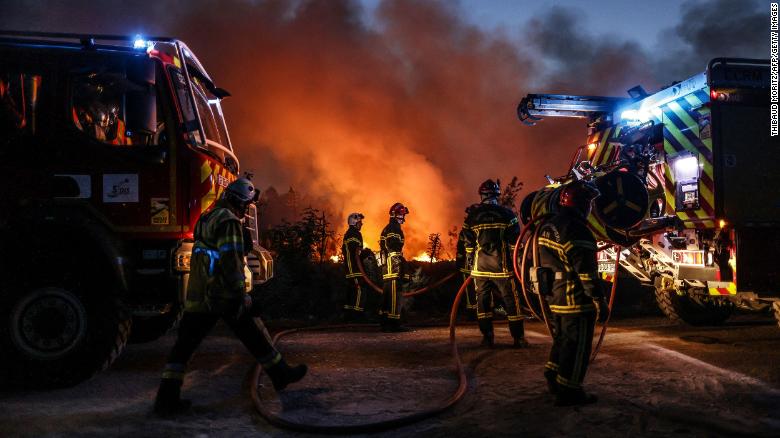
London (CNN) – The UK’s recent heat wave was the Great British Bake Off that no one wanted — and it was made at least 10 times more likely by human-caused climate change, a new analysis shows.
But the World Weather Attribution project, which carried out the analysis, also said that its findings are likely to be an underestimate, warning that the tools available to scientists have limitations and are creating a blind spot to just how much of a role humans are playing in heat waves.
Heat waves are becoming more frequent and longer globally, and scientists say that human-caused climate change has an influence on all of them.
The tougher question to answer is: “By how much?”
To determine human influence on extreme heat, scientists use a combination of observations and climate models, or simulations. While models are often conservative in their findings, observed extreme heat in western Europe increased much more than estimated by the models.
“While models estimate greenhouse gas emissions increased temperatures in this heatwave by 2˚C, historical weather records indicate that the heatwave would have been 4˚C cooler in a world that had not been warmed by human activities,” WWA said in a press release. “This suggests that models are underestimating the real impact of human-caused climate change on high temperatures in the UK and other parts of Western Europe. It also means that the results of the analysis are conservative and climate change likely increased the frequency of the event by more than the factor of 10 estimated by the study.”
The UK last week experienced high temperatures that climbed over 40 degrees Celsius (104.5 degrees Fahrenheit) for the first time on record on July 19, hitting 40.3C in the English village of Coningsby. The British government issued its first-ever red level extreme heat warning for several parts of England, including the capital, London.
As temperatures soared, the country’s infrastructure buckled. Train tracks bent out of shape; an airport runway melted; London’s fire brigade declared a “major incident” as a number of fires broke out, in what the service said was its busiest days since World War II.
People were advised to work from home, some schools were shuttered, while hospitals and emergency services were stretched to their limits.
“In Europe and other parts of the world we are seeing more and more record-breaking heatwaves causing extreme temperatures that have become hotter faster than in most climate models,” said Friederike Otto from the Grantham Institute for Climate Change at Imperial College London, who leads the WWA project. “It’s a worrying finding that suggests that if carbon emissions are not rapidly cut, the consequences of climate change on extreme heat in Europe, which already is extremely deadly, could be even worse than we previously thought.”
Every fraction of a degree of global warming will bring worsening impacts of the climate crisis. The world has already warmed around 1.2 degrees Celsius on average, and there is a growing consensus that humans must try to keep warming to 1.5 degrees to avoid tipping points, where some ecosystems that the Earth relies on for its ecological balance may struggle to recover.
The scientists said the model results also indicated a heat wave as intense as last week’s in the UK is “still rare in today’s climate,” with a 1% likelihood of it happening each year. However, once again weather records suggest the computer simulation results are conservative and similar extreme heat events are likely to occur more frequently as well.




